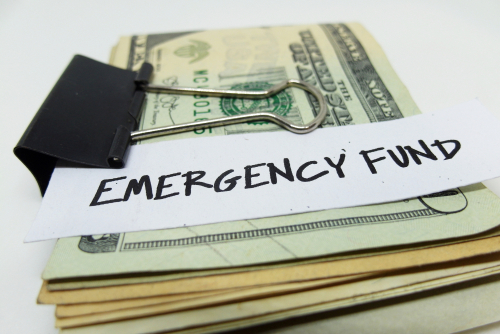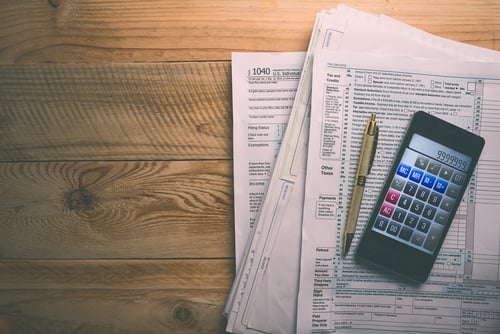A Property Investor’s Guide to End of Year Tax Planning
The endless amount of tasks associated with end-of-year tax planning can be challenging for rental investors. Therefore, we recommend hiring a property management company to assist with tax filing.
That said, whether you hire a professional company or file your taxes yourself, you’ll want to learn some ways to prepare. So keep reading as we go over some basic accounting practices for end-of-year tax planning, common tax write-offs, and ways to keep track of your records all year round.
Basic Accounting Practices for End of Year Tax Planning
If you are a landlord or real estate investor, you know how easy it can be to fall behind on regular accounting tasks. That said, you also know how important it is to keep thorough records when you own one or more rental properties.
Adapting some basic accounting skills early on in your rental investment career can allow you to focus more on growing your business. So let’s look at some basic accounting practices for end-of-year tax planning.
- Keep Business and Personal Finances Separate
- Keep Properties Separate
- Have an Emergency Savings Fund
- Use Accounting Software to Track Income and Expenses
- Hire Professionals
- Maximize Tax Savings and Write-Offs
- Stay Informed on Tax Requirements
Keep Business and Personal Finances Separate
In order to keep accurate records, it’s crucial to have separate accounts for your rental properties and your personal funds. For example, if you own one or more rental properties, you’ll want to have a business checking account, a savings account, and a line of credit if necessary. This way, it’s easier to keep track of rental income, security deposits, and other business expenses without intertwining them with personal finances.
Keep Properties Separate
Like how you want to keep your personal and business finances separate, you’ll also want to keep each rental property separate in your overall portfolio. This makes it easier to see each unique set of profits, expenses, and losses. So, naturally, it’s easier to keep track of each rental property’s finances when they are separate from one another. In turn, this will make things much easier for end-of-year tax planning.
Have an Emergency Savings Fund

Landlords know that unexpected expenses can be disastrous—especially if you don’t have the funds saved up. So you’ll want to plan for emergencies and unforeseen costs by setting up a maintenance savings account.
It’s best to do this early on in your investment career so that you can start the habit of saving a small percentage of rental income each month. This ensures that you have a bit of a cushion if an emergency pops up.
Use Accounting Software to Track Income and Expenses
There are many ways to track your income and expenses for your rental property. You can create a spreadsheet or utilize specialized property management software, but either way, tracking plays a massive role in efficient accounting. As soon as each rental property has a separate account, you can begin tracking all finances.
If you’re unsure of what program to use, a few popular rental property accounting software solutions include:
- Quickbooks- Quickbooks is considered the number one software solution for small businesses, including rental investments. Their full-service tracking and reporting system can help any landlord prepare for end-of-year taxes.
- FreshBooks- Similarly, FreshBooks is another great option for tracking rental property expenses. Landlords can use this software to collect rent payments, send invoices, and easily track all expenses.
- Rental Hero- Rental Hero is an excellent choice for landlords who want a user-friendly experience. This software allows landlords to track each property separately to generate different reports for each one.
Hire Professionals
Landlords who choose to file taxes on their own know that it can be time-consuming and potentially frustrating. This is why we recommend hiring a certified accounting team member or a property management company to help keep things organized. Along with that, trusting a professionals’ expertise can keep your rental property safe from additional liability issues.
Maximize Tax Savings and Write-Offs
Many different tax deductions are available for your rental property. To maximize your ROI, consult with your accountant or property manager to learn about what deductions are eligible. Some of the most common tax deductions to note for the end of year tax planning include:
- Repairs and Maintenance- Property owners can deduct costs for repairs or maintenance that have occurred throughout the year. For example, these costs may include new flooring, HVAC repairs, and more.
- Depreciation- Landlords can deduct the costs of improving a home due to depreciation. According to Investopedia, homes depreciate at an average rate of 3.6% each year for 27.5 years.
- Loan Interest- Most typical homeowners, cannot deduct loan interest. However, landlords can. When filing taxes, landlords should include the amount paid that year for the rental property’s mortgage loan interest.
- Travel and Office Costs- Rental property business owners can deduct costs for renting a home office or office space. Similarly, travel expenses that deal with the rental property may also be deductible.
- Employees- Landlords that own more than one rental property will most likely have employees by their side to help them manage it all. These employees or contractors may include maintenance staff, painters, or carpenters.
- Legal Services- You may also be able to deduce legal service expenses. These may include real estate attorneys for lease drafting or eviction attorneys.

Stay Informed on Tax Requirements
Since not all landlords will be tax experts, they will need to be well-informed of responsibilities and requirements during tax season. That said, make sure that you know what tax forms you’ll need and how to use them for your accounting needs. Also, be aware of what penalties may occur for using the wrong tax forms or committing tax fraud.
Need Help Keeping Track of Finances?
If you are a landlord who needs help keeping track of finances, you are not alone. Luckily, the Bay Property Management Group professionals offer several services to make things easier for you.
Our full-service management team offers services like rent collection, tenant screening, record keeping, and more. With monthly and annual financial statements available, you’ll be able to easily keep track of each rental income and expense for each property you own. If you are in need of management services, contact us today.


